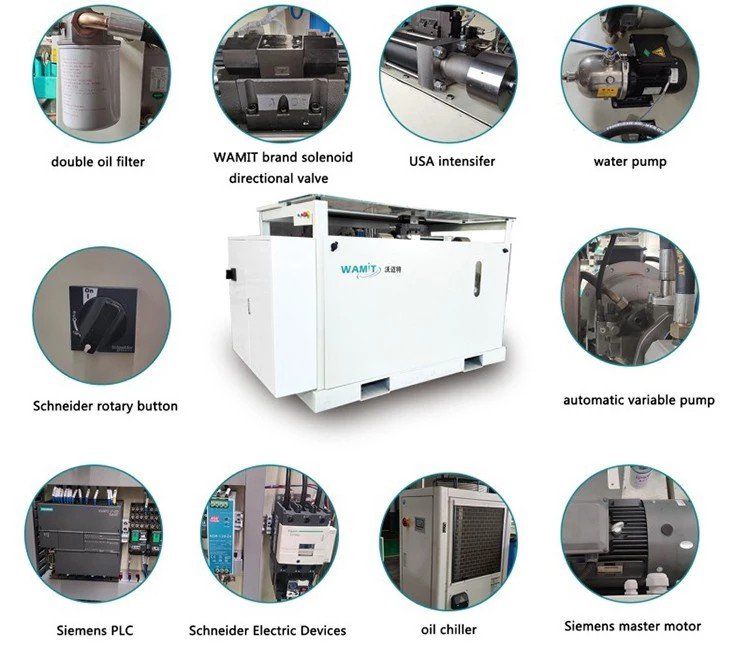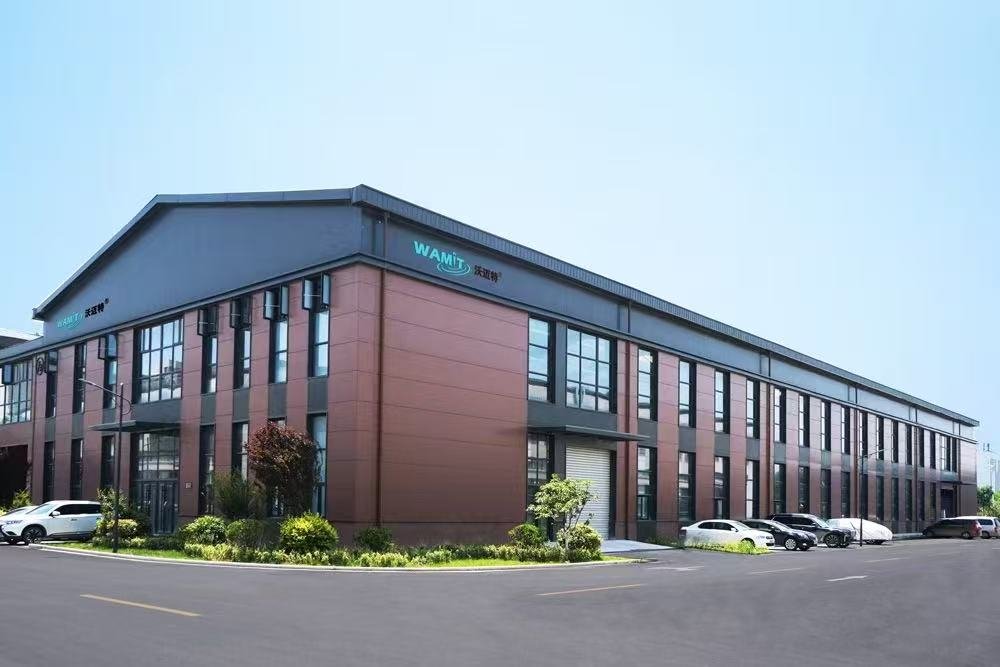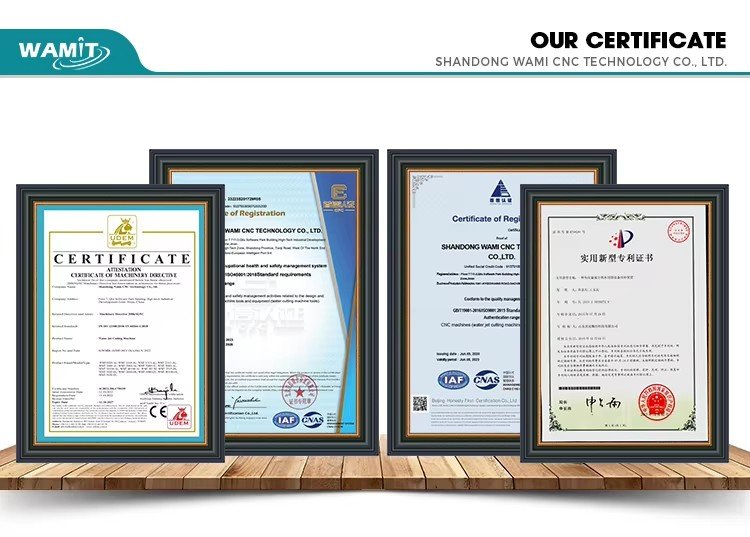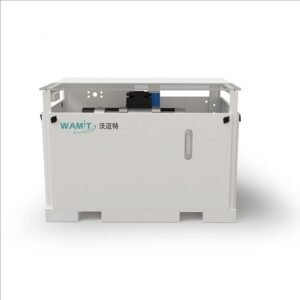37kw 380v 220v 60000psi WAMIT Waterjet Cutting intensifier Pump
WMT ultra-high pressure system.
A10V071 automatic variable oil pump, Schneider electrical components, with high performance.
|
SPECIFICATION
|
||||
|
Model
|
WMT JET 50
|
WMT JET 100-40
|
||
|
Main Motor Power
|
37KW(50HP)
|
75KW(100HP)
|
||
|
Maximum Pressure
|
420Mpa
|
280Mpa
|
||
|
Continuous Working Pressure
|
300-380Mpa
|
220-260Mpa
|
||
|
Pressure Ratio
|
20:1
|
13:1
|
||
|
Maximum Orifice Size
|
0.33mm
|
0.45mm
|
||
|
Inlet Pressure
|
0.4Mpa
|
0.4Mpa
|
||
|
Maximum Displacement
|
3.7 L/min
|
11.0 L/min
|
||
|
Power Supply
|
380AVC 50HZ 3Phase
|
380AVC 50HZ 3Phase
|
||

SHANDONG WAMI CNC TECHNOLOGY CO.LTD is the professional supplier of water jet cutting machine and relative parts. Our factory is located in JINAN city, SHANDONG province, China.
With more than 15 years development, we have more than 40 series of self-developed designs and molds, and obtain several patents on waterjet cutting machine. We also achieve the ISO and CE certificate.
Our machine has been in the international leading level. We have introduced laser interferometer and have more than 10 QC members to carry out strict inspection at each stage: incoming inspection (IQC), in-process inspection (IPQC) and final inspection (FQC). With our rich experience and considerate services, we have been recognized as a reliable supplier by many international buyers.
We take “Strict quality control, constant technology innovation, qualify and efficiency services” as our consistent business
principle. With the strict management and continuous improvement, we can supply the best solution of cutting by water jet. Please don’t hesitate to contact us if you want to know more!








